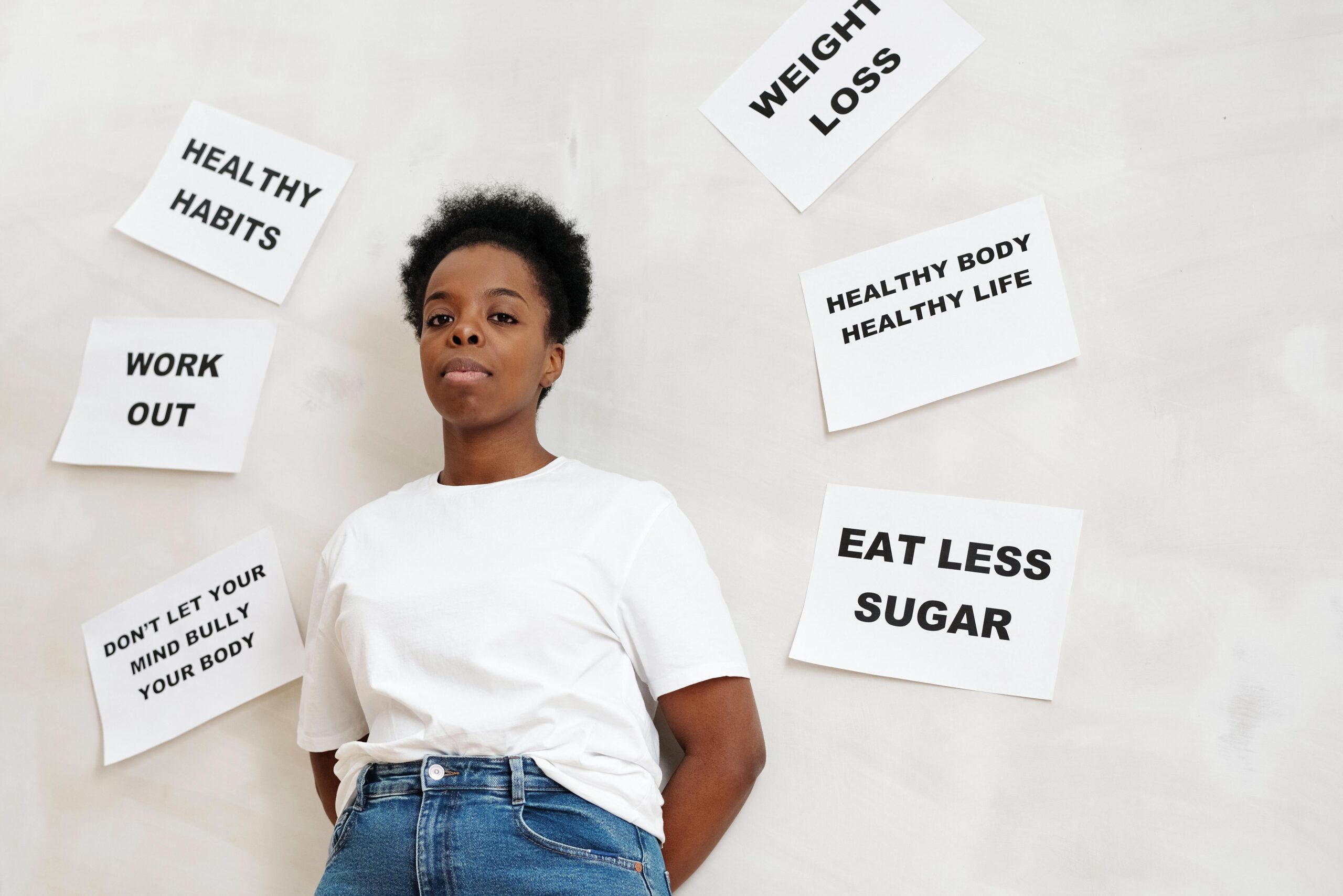You Don’t Need Permission to Begin
- Mindset and Habits
- May 6, 2025
- byCharlotte
Have you ever watched someone speak, dance, create, or lead with total confidence—and felt a small pull in your chest? That brief flicker of “I want to do that too,” right before your brain jumps in to remind you: That’s not for you. That’s not your place.
This happens more often than we realize. Somewhere along the way, many of us absorbed the belief that certain paths, certain behaviors, even certain dreams are reserved for other people. Not because it’s true, but because we were conditioned to think so.
The Inherited Script of Success
Most of us grew up being taught a specific version of success: study hard, earn the degree, get the job, move up the ladder. Stay productive. Be agreeable. Be safe. Following the plan makes you “good,” and stepping outside of it? That’s often framed as irresponsible, selfish, or risky.
We rarely question that narrative, even though it’s incredibly narrow. When we imagine trying something different—like changing careers, starting a creative project, or even speaking up online—it can trigger discomfort that feels like fear, guilt, or self-doubt. But often, that discomfort isn’t coming from the dream itself. It’s coming from the expectations we inherited without realizing it.
How Roles Become Emotional Safety Nets
From childhood, we’re praised for playing certain roles: being a good student, a high achiever, the “nice girl” who never stirs the pot. These roles aren’t just part of how others see us—they become part of how we see ourselves. They give us structure, identity, and emotional safety.
But they also come with unspoken rules. Rules that say, Don’t mess up. Don’t take up too much space. Don’t try something unless you’re sure you’ll succeed. So when we consider doing something new, we’re not just facing uncertainty—we’re risking our sense of who we are.
Trying something unfamiliar starts to feel dangerous. We ask ourselves, If I fail, who am I then? If I say no for once, am I still a good person? These aren’t shallow doubts. They come from deep, often unconscious conditioning.
I Almost Didn’t Launch Waiting for Permission
A few months ago, I almost talked myself out of launching my YouTube channel.
I had so much I wanted to say, but I kept getting stuck on thoughts like: Who’s going to care what I have to say? Do I need some sort of certificate to speak online? What if I sound unprofessional?
Eventually, I reminded myself: I’m not here to be the ultimate expert but to share what I’m noticing, what I’m learning, and what I’m unlearning. I’m not offering a polished answer to life, only a perspective—from someone still in the process.
And honestly? That’s the kind of content I crave myself. I want to hear from people who haven’t forgotten what it feels like to be uncertain, messy, and human. I don’t need someone with all the answers. I need someone who remembers the questions.
You Don’t Have to Be Polished to Start
There’s a quote by Alex Hormozi—who I don’t always align with, but credit where it’s due—that says:
“You just need to be willing to suck at something long enough to get good.”
That has stayed with me. Because perfection isn’t the entry fee to begin something. Permission isn’t required. You don’t need to be ready, or qualified, or endorsed by anyone. You just need to be willing. Willing to show up honestly. Willing to learn in public. Willing to be a beginner.
The voice in your head telling you to wait until you’re more credible, more polished, more perfect? That voice is trying to protect you. But it’s also holding you back.
Practicing Radical Acceptance
One of the most powerful mindset shifts I’ve learned is something called radical acceptance. It’s not about giving up or lowering the bar. It’s about seeing reality clearly—and choosing to act anyway, without permission.
In this context, it means accepting that:
You might not be perfect.
Some people might not get it.
You’ll probably make mistakes.
And still, doing it anyway.
Radical acceptance is about letting go of needing everyone’s approval. It’s choosing clarity over control. It’s saying: “I see this clearly. I see that I’m scared. I see that I might mess up. But I’m doing it anyway, no need for permission, because I want to live a life that’s actually mine.”
What It Means to Be a Bold Beginner
This is what being a Bold Beginner is all about. It’s not about mastering something overnight but rather starting without a guarantee. It’s choosing action over permission. It’s releasing the need to prove yourself before you even try.
When you let go of needing to be perfect, you free yourself to be present. You start exploring, experimenting, trying and failing—not as evidence that you’re not good enough, but as part of the process of becoming.
You’re no longer living to meet someone else’s definition of “enough.” You’re defining that for yourself.
A Practice to Try This Week
Here’s a small but powerful practice:
The next time you catch yourself thinking, “I should do this”, pause.
Ask yourself: “Is this actually me—or is this a role I’ve been trained to play and only what’s expected of me?”
That one question can start to unravel years of conditioning.
It might even help you see what you actually want.
And once you see it? You can begin.
If this resonated with you, feel free to share it with someone who needs a reminder that it’s okay to start before they feel ready.
Or drop a comment below: What’s something you’ve been holding back from doing—and what would it look like to begin without permission?
More Related Blogs

You Don’t Need Permission to Begin
Ever feel like you’re waiting for permission to start something new? Maybe it’s a creative idea, a career shift, or...
Read More
How to Overcome Analysis Paralysis and Imposter Syndrome
Struggling with overthinking, perfectionism, or burnout? Learn two simple, science-backed tools to break free from analysis paralysis and start taking...
Read More
Is Kindness the Key to Your Growth? A Lifeline For Beginners
Kindness is bold, despite what society tells us. It helps beginners grow, connect, and feel safe to overcome their fears...
Read More
10 Unconventional Lessons I’ve Learned Failing A Business
Discover the unconventional lessons, hard-won wisdom, and strategies I learned from starting—and failing—my startup as a female entrepreneur.
Read More
Feeling Like a Failure: Lessons Learned to Bounce Back
Failure doesn’t define you—it teaches you. Bounce back stronger with lessons learned, rebuild confidence, and turn self-doubt into resilience!
Read More
5 Small Habits That Will Change Your Life
Small habits can be life-changing! Forget overwhelming resolutions—lasting change starts with simple, actionable steps. Ready to transform your life?
Read More
How To Overcome Imposter Syndrome as a Multipotentialite
How To Overcome Imposter Syndrome as a Multipotentialite Mindset and HabitsSeptember 23, 2024byCharlotte Do you sometimes feel like you’re constantly...
Read More
7 Strategies To Overcome the Fear of Judgment
7 Strategies To Overcome the Fear of Judgment When Starting Something New Mindset and HabitsAugust 28, 2024byCharlotte Ever feel paralyzed...
Read More
10 Tips To Take the First Step in Starting Anything New
The first step is always the hardest part of any journey but it’s also the most powerful ✨. In this...
Read More
7 Ways Our Beginner’s Fear Holds Us Back
Starting something new as an adult can feel exciting—but let’s be honest, it’s also scary. From impostor syndrome to the...
Read More